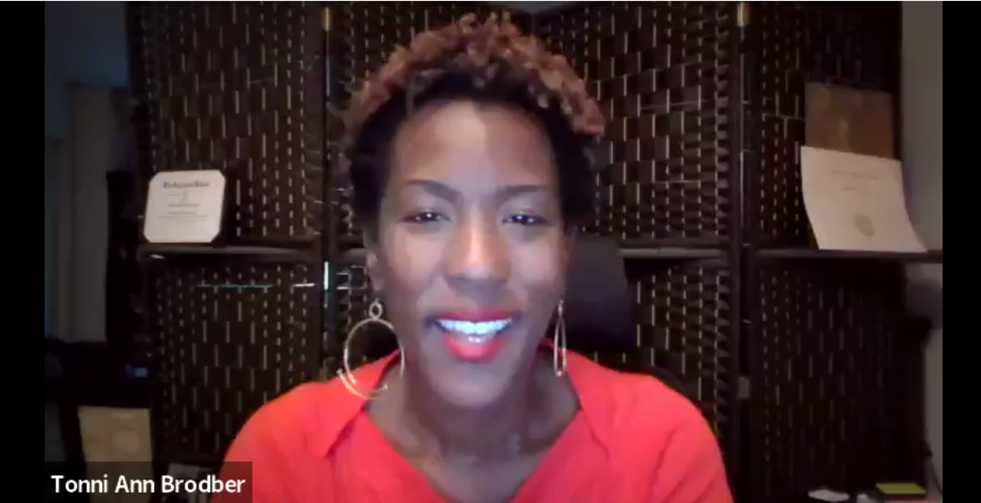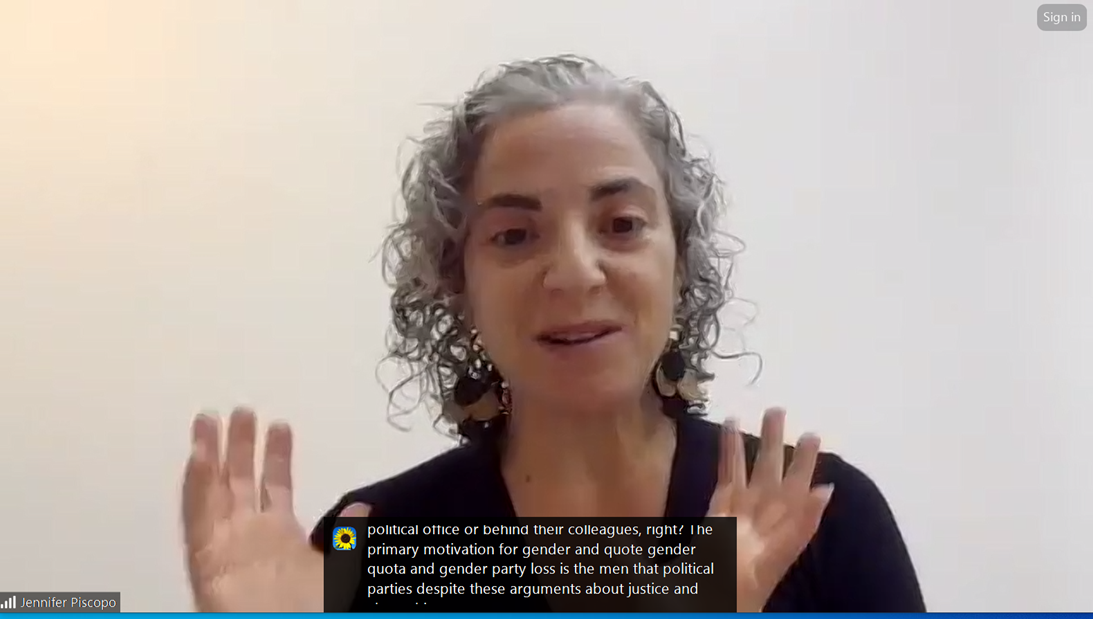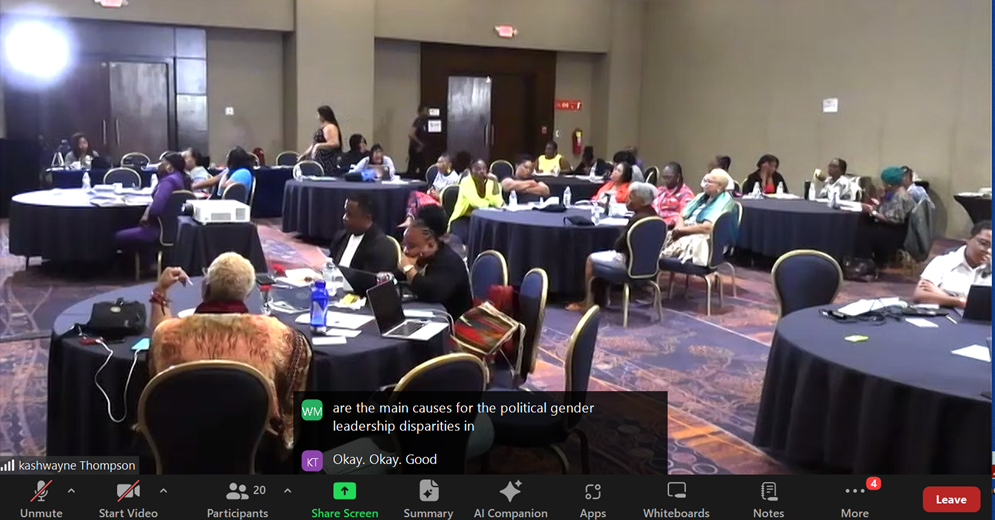Only Two Caribbean Countries Meet 30% Gender Quota for Women Parliamentarians: Region Cannot Reach Full Potential Without Including Women in Leadership Roles
Date:
“Our research with ParlAmericas shows that on an average, right now we have not yet met the critical mass of 30%, as the Beijing Platform for Action spoke to; we do not have over 30% of women in elected positions, except in two countries. Guyana, we have a lot to learn from you, and Trinidad and Tobago.”
This data was revealed by Tonni Brodber, Representative, UN Women Multi-Country Office – Caribbean in her key remarks at an EU-UN Spotlight Initiative virtual event with implementing partner Atlantic Council on, “Best Practices to Expand Women’s Political Participation in Guyana and Jamaica.”
Ms. Brodber gave special mention to Jamaica, which stands just under the critical mass with 29% representation by women Parliamentarians. Jamaica also held its first sitting of its Women’s Parliamentary Caucus in February 2023 with the support of UN Women and ParlAmericas, under the EU-UN Spotlight Initiative.

Tonni Brodber, Representative, UN Women Multi-Country Office – Caribbean
delivers the key remarks
Women’s equal participation and leadership in politics is essential to achieving the Sustainable Development Goals by 2030. However, the data shows that globally, women are underrepresented in political life, and in the Caribbean, the figures show a similar trend.
Ms. Brodber pointed out that there are multiple benefits of women’s political participation and emphasized that it would be difficult for the region to succeed in the way it can if it does not tap into more than 50% of the population. She said, “We know that gender equality in and of itself is not only a sustainable development goal, but it is a catalyst for achieving all of the other sustainable development goals and a key indicator of achieving gender equality is the proportion of women in leadership roles, if we are that critical mass of 30%. Women’s economic empowerment as well is critical for gender equality and sustainable development and sustainability.”
Joining the conversation to discuss best practices to expand women political participation was Ms. Jennifer Piscopo - Professor of Gender and Politics. She impressed upon the participants that women should be in leadership positions for the basic reason of justice and fairness in democracy. Ms. Muñoz-Pogossian also pointed out that research shows that voters across the globe prefer to see diverse decision-making bodies, which they see as legitimate and fair.

Ms. Jennifer Piscopo - Professor of Gender and Politics, addresses the forum
Angelica Mayolo, Former Minister of Culture, Republic of Colombia, and US – Colombia Advisory Group Member Atlantic Council spoke about important pillars that are crucial to foster women’s participation in politics including affirmative action legislation and commitment of political parties. In Colombia, Law 581 was passed in 2000, which provided for a quota system where at least 30% public offices are occupied by women. She also highlighted the importance of education, eliminating stereotypes that affect the participation of women in politics and financial support to promote the participation of women in politics.
Participants attending the virtual conversation discussed best practices, main challenges, required actions and main actors to be part of the solution to expand women political participation in the Caribbean.

Click here to access UN Women’s Report on “Women in Political Leadership in the Caribbean”.
This conversation is part of the ongoing programme of the EU-UN Spotlight Initiative with implementing partner Atlantic Council. The next collaboration is the Guyana Gender Forum on November 15th, 2023.